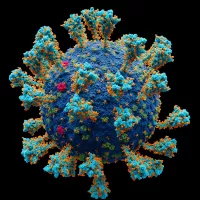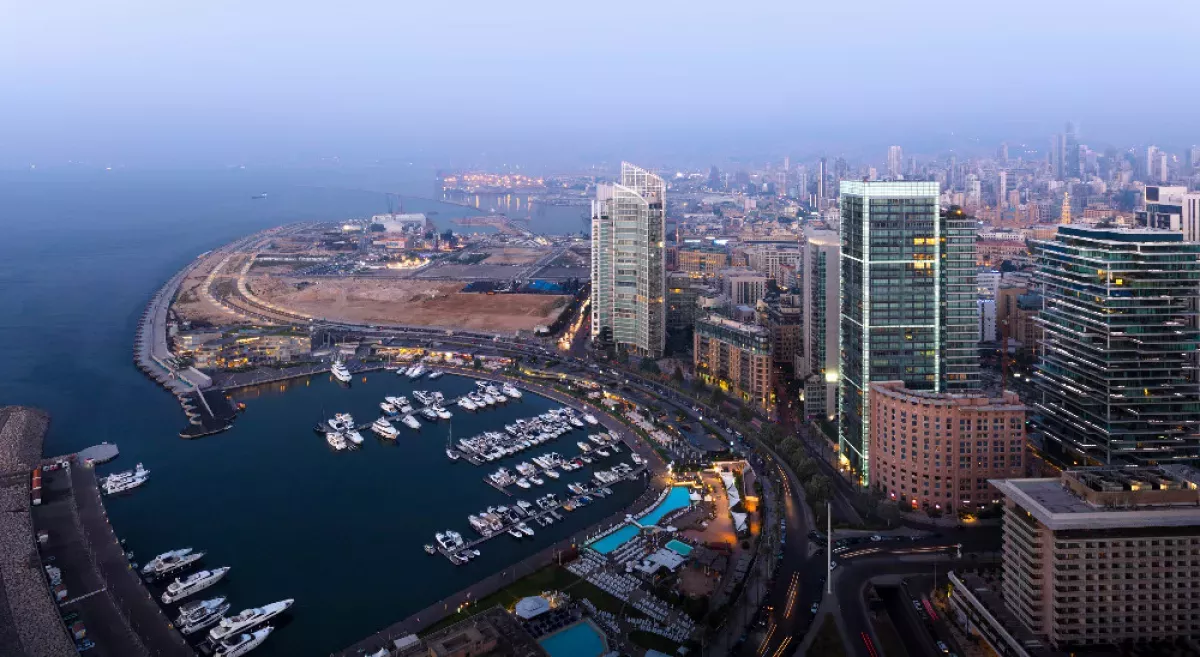Beirut is the capital and largest city of Lebanon, with a population of 2.5 million as of 2014, representing nearly half of Lebanon's total population. This makes it the third-largest city in the Levant and sixteenth-largest in the Arab world. Located on a peninsula along Lebanon's Mediterranean coast, Beirut boasts a rich history, having been inhabited for over 5,000 years, solidifying its status as one of the world's oldest cities.
1900: Discussion of Site
In 1900, Godefroy Zumoffen discussed the Minet el-Hosn site discovered by Lortet.
1907: Rail Link Established
In 1907, a rail link was established across Lebanon to Damascus and Aleppo.
1911: Population Report
The 1911 Encyclopædia Britannica reported Beirut's population consisted of 36,000 Muslims, 77,000 Christians, 2,500 Jews, 400 Druze and 4,100 foreigners.
1932: Last official population census
Since 1932, no official population census has been conducted in Lebanon, including Beirut, leading to varying population estimates.
1943: Independence and Capital Status
In 1943, Lebanon achieved independence, and Beirut became the capital city.
1948: Destruction of Site
By 1948, the Umm el-Khatib site, where a Copper Age flint industry was discovered, had been built on and destroyed.
April 1954: Airport Opens
Beirut International Airport was opened on 23 April 1954.
September 1956: Passing of the Banking Secrecy Law
On September 3, 1956, the banking secrecy law was passed, subjecting banks in Lebanon to the "secret of the profession".
1960: Miss Europe pageant
In 1960, Beirut hosted the Miss Europe pageant.
1964: Miss Europe pageant
In 1964, Beirut hosted the Miss Europe pageant.
1964: Discovery of Sites
In 1964, Lorraine Copeland, Peter Wescombe, and Marina Hayek discovered the Rivoli Cinema and Byblos Cinema sites near the Bourj in the Rue el Arz area.
1970: Publication of L'Orient Le Jour
L'Orient Le Jour, a French-language newspaper, has been published in Beirut since 1970.
1974: Previous Visitor Record
In 1974, Beirut had a previous record of 1.4 million visitors.
April 1975: Establishment of a Free Banking Zone
On April 1, 1975, decree No. 29 established a free banking zone, granting the Lebanese government the right to exempt non-residents' deposits and liabilities in foreign currency from taxes and reserve requirements.
1975: Start of Lebanese Civil War
In 1975, the Lebanese Civil War began, significantly altering Beirut's political landscape.
1976: Continued Civil War
The Lebanese Civil War continued in 1976, with about 60,000 people dying in the first two years of the war.
1978: Syrian Siege of Achrafiyeh
In 1978, the Syrian siege of Achrafiyeh occurred, with Syrian troops shelling the eastern quarter of Beirut.
1983: Barracks Bombings
In 1983, French and US barracks were bombed, resulting in numerous fatalities.
1989: Fighting in East Beirut
Between 1989 and 1990 parts on East Beirut were destroyed in fighting between Lebanese army units loyal to General Aoun and Samir Geagea's Maronite Christian Lebanese Forces with the Syrian Armed Forces-backed Elias Hrawi and Salim Al-Huss Lebanese army forces.
1990: Fighting in East Beirut
Between 1989 and 1990 parts on East Beirut were destroyed in fighting between Lebanese army units loyal to General Aoun and Samir Geagea's Maronite Christian Lebanese Forces with the Syrian Armed Forces-backed Elias Hrawi and Salim Al-Huss Lebanese army forces.
1990: End of Lebanese Civil War
In 1990, the Lebanese Civil War ended, marking a significant shift in Beirut's political and economic environment.
1990: End of War and Anarchic Development
Since the end of the war in 1990, the people of Lebanon have been rebuilding Beirut, whose urban agglomeration was mainly constituted during war time through an anarchic urban development stretching along the littoral corridor and its nearby heights.
1991: Start of Archaeology
Little archaeology was carried out until after the civil war in 1991.
1992: Criticism of Solidere project
In 1992, Nabil Beyhum criticized the Solidere project for destroying "the last Ottoman and medieval remains in Beirut".
December 1993: Exemptions from income tax
Article 16 of law No. 282 dated December 30, 1993 offered exemptions from income tax on all interest and revenues earned on all types of accounts opened in Lebanese banks.
1993: Salvage Excavations
Salvage excavations after 1993 yielded new insights into the layout and history of this period of Beirut's history.
1993: Insights into Roman Berytus
Since 1993, salvage excavations have yielded new insights into the layout and history of Roman Berytus.
August 1994: Exemptions from income tax
Article 12 of decree No. 5451 dated August 26, 1994 offered exemptions from income tax on all interest and revenues earned on all types of accounts opened in Lebanese banks.
1994: Establishment of Solidere
In 1994, Solidere, a development company, was established by Prime Minister Rafic Hariri.
1997: Criticism of Solidere project
In 1997, Saree Makdisi criticized unapproved demolitions in the 1980s and early 1990s.
1999: Miss Europe pageant
In 1999, Beirut hosted the Miss Europe pageant.
2000: Saint Joseph University opened the Museum of Lebanese Prehistory
In 2000, Saint Joseph University opened the Museum of Lebanese Prehistory.
2000: Opening of Museum of Lebanese Prehistory
In 2000, the Saint Joseph University opened the Museum of Lebanese Prehistory, the first prehistory museum in the Arabic Middle East.
2001: Miss Europe pageant
In 2001, Beirut hosted the Miss Europe pageant.
2002: Beirut hosted the Francophonie and Arab League summits
In 2002, Beirut hosted the Francophonie and Arab League summits.
2002: Miss Europe pageant
In 2002, Beirut hosted the Miss Europe pageant.
2003: Publication of Beirut and its Seven Families
In 2003, Yussef Bin Ahmad Bin Ali Al Husseini published his book entitled Beirut and its Seven Families.
April 2005: Syrian Troop Withdrawal
The last Syrian troops withdrew from Beirut on 26 April 2005.
2006: Beirut Ranked as a Top City
In 2006, Travel + Leisure magazine's World Best Awards ranked Beirut as the 9th best city in the world.
2007: Prix Albert Londres ceremony hosted in Beirut
In 2007, Beirut hosted the ceremony for the Prix Albert Londres, which rewards outstanding francophone journalists.
May 2008: Violent Clashes
In May 2008, violent clashes broke out between government allies and opposition forces, before control of the city was handed over to the Lebanese Army.
2008: Beirut Listed as a Top Ten City
In 2008, The Guardian listed Beirut as one of its top ten cities in the world.
2009: World Book Capital and Jeux de la Francophonie
In 2009, Beirut hosted the Jeux de la Francophonie and was proclaimed World Book Capital by UNESCO.
2009: Beirut named a top destination
In 2009, The New York Times named Beirut the top place to visit, and Lonely Planet listed it as one of the ten liveliest cities.
2009: Beirut Ranked #1 Place to Go
In 2009, The New York Times ranked Beirut at number one on its "44 places to go" list.
2009: Rise in Medical Tourism
Since 2009, medical tourism in Lebanon has been growing by up to 30% a year.
2010: Record Number of Visitors
Approximately 3 million visitors came to Beirut in 2010.
2010: Beirut ranked as an expensive city
In 2010, Beirut was ranked as the 4th most expensive city in the Middle East by Mercer and 10th internationally for high-quality housing by "EuroCost International".
2011: Discovery of Possible Port
Around 2011, a Lebanese archaeological team claimed to have discovered a port or dry dock about 1 kilometer west of the Phoenician port.
2011: Beirut's foreign reserves
In 2011, Beirut's foreign reserves reached $32.5 billion.
2011: High visitor spending levels
The 2011 MasterCard Index revealed that Beirut had the second-highest visitor spending levels in the Middle East and Africa, totaling $6.5 billion.
2011: Visitor Spending Levels in Beirut
The 2011 MasterCard Index revealed that Beirut had the second-highest visitor spending levels in the Middle East and Africa, totaling $6.5 billion.
June 2012: Authorization to Destroy Ruins
On June 26, 2012, authorization was given by the Lebanese Minister of Culture to destroy the ruins (archaeological site BEY194) for a construction project.
October 2012: Car Bombing in Achrafiyeh
On 19 October 2012, a car bomb killed eight people in Beirut's neighborhood of Achrafiyeh.
2012: Tourist statistics
According to the 2012 tourist statistics, 34% of tourists in Beirut came from Arab League states, 33% from European countries, and 16% from the Americas.
2012: Beirut Chosen as Best City in the Middle East
In 2012, Beirut was chosen by Condé Nast Traveller as the best city in the Middle East.
2012: Clemenceau Medical Center Ranked Top Hospital
In 2012, Beirut-based Clemenceau Medical Center (CMC) was ranked as one of the world's top ten best hospitals for medical tourism.
2012: Purchase of Additional Buses
In 2012, the ministry of transport and public works purchased an extra 250 intra and inter-buses to serve Beirut and other regions.
October 2013: Opening of Mim Museum
In October 2013, Mim Museum, a private mineral museum, opened its doors to the public.
December 2013: Car Bombing in Central District
On 27 December 2013, a car bomb exploded in the Central District, killing at least five people.
2013: Beirut ranked in the top 20 best cities
In 2013, Condé Nast Traveller ranked Beirut in the top 20 best cities in the world.
December 2014: Beirut selected as one of the New 7 Wonders of Cities
On December 7, 2014, Beirut was selected to be among the New 7 Wonders of Cities.
2014: Population Estimate
As of 2014, Greater Beirut has a population of 2.5 million, which is just under half of Lebanon's population.
2014: Confessional breakdown of registered voters in Beirut
In 2014, Beirut had a confessional breakdown of registered voters.
July 2015: Start of Garbage Crisis
In July 2015, Beirut began experiencing a massive garbage crisis due to authorities shutting down the main landfill and failing to provide alternatives, leading to garbage piling up in the streets.
November 2015: Beirut Bombings
On 12 November 2015, the Beirut bombings occurred, with two suicide bombers detonating explosives, resulting in 43 deaths and 200 injuries.
March 2016: Government Solution to Garbage Crisis
In March 2016, the Lebanese government established two new landfills as a temporary solution to the garbage crisis, while some municipalities began recycling and managing waste more efficiently.
2016: Miss Europe pageant
In 2016, Beirut hosted the Miss Europe pageant.
2016: Beirut recognized for its food and as a top city
In 2016, Yahoo listed Beirut as the best international city for food, and Travel and Leisure ranked it in the top 15 of the world's best cities.
2017: Introduction of Bike Sharing Service
In 2017, Beirut introduced a bike sharing service in certain areas of the city.
October 2019: Tourism sector affected by protests and economic situation
In October 2019, Beirut's tourism sector was negatively affected by anti-government protests, a dire economic situation, and travel bans due to the coronavirus outbreak.
2019: Must-visit city of the year
In 2019, Beirut was voted the must-visit city for the year by World Tourists.
August 2020: Port Explosion
On 4 August 2020, a massive explosion in the Port of Beirut resulted in numerous deaths, injuries, and widespread damage.
September 2020: Fire in Port
Weeks later, a huge fire erupted in an oil and tyre warehouse in the port's duty-free zone, on 10 September 2020.
2020: Port Explosion
In 2020, Beirut was severely damaged by a massive explosion in the Port of Beirut.
2020: Damage to Gemmayzeh by Beirut explosion
In 2020, Gemmayzeh, Beirut, received the most damage by the Beirut explosion.
Mentioned in this timeline

Coronaviruses are a family of RNA viruses affecting mammals and...
The Guardian is a British daily newspaper founded in as...
Africa is the second-largest and second-most populous continent comprising of...
Syria officially the Syrian Arab Republic is a West Asian...

A car also known as an automobile is a wheeled...
Lebanon is a country in the Levant region of West...
Trending
2 months ago Dylan O'Brien Stars in Sam Raimi's Outrageous Horror Comeback, 'Send Help'

The Farmers Insurance Open is a PGA Tour golf tournament held annually in San Diego California at Torrey Pines Golf...

3 months ago Luke Evans Lands Broadway Role as Frank-N-Furter in 'Rocky Horror Show'

Charles Joseph Scarborough is an American television host attorney political commentator and former politician best known for co-hosting MSNBC's 'Morning...

8 months ago Gronkowski's Personal Announcement, Patriots Guarantee, and 2025 Prediction.
2 months ago Julian Champagnie Achieves Second Consecutive Double-Double, Highlights Include a Big Dunk
Popular

Thomas Douglas Homan is an American law enforcement officer who...

William Franklin Graham III commonly known as Franklin Graham is...

Jupiter is the fifth and largest planet from the Sun...

XXXTentacion born Jahseh Dwayne Ricardo Onfroy was a controversial yet...

Kristi Noem is an American politician who has served as...

Instagram is a photo and video-sharing social networking service owned...
